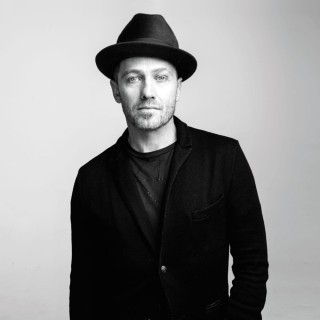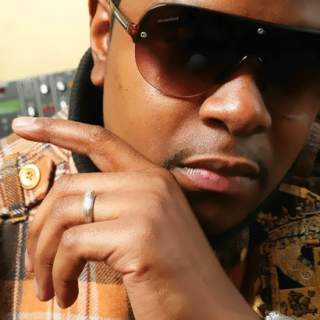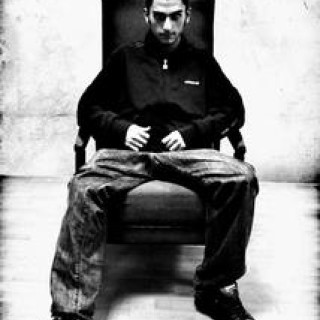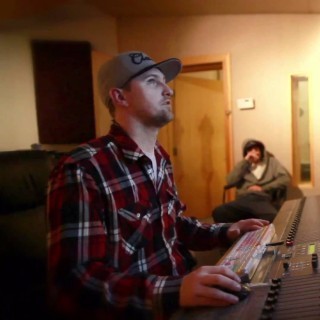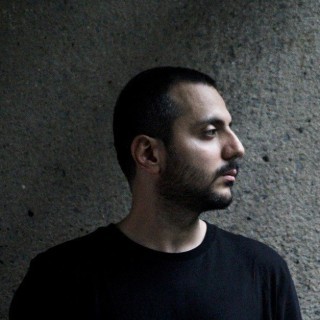
121
Tech
Tekst piosenki
This transcript is annotated! Click on the highlights to read what others are saying. If you'd like to add your own insights, comments, or questions to a specific line, highlight the relevant text and click on the button that pops up.
Andrew Mason: That was a really good intro for making it up just then. I mean, it was bad in the way jazz is bad.
Jessica Livingston: You're dodging the question about the wonderful music we were just listening to from your album “Hardly Working.” Please check it out! It's awesome and on iTunes - you can buy it. I'm not sure what song that was?
Andrew Mason: That was Look No Further, and it's about how you don’t need to be reading business books or anything like that in order to learn how to be great at business. You can find beauty in witnessing the birth of an octopus for example, or other such natural wonders.
Jessica Livingston: I had specifically requested Risin' Above the Pack because that's one of my favorites, but anyway thank you for coming! I’d love to spend a few minutes before we get into Groupon – because I know the audience is probably excited to hear about that – to hear a little bit about before Groupon when you started a company called The Point, specifically how you came up with the idea and what went wrong with it, why it didn’t work, how you started – you know, that kind of thing. It led to Groupon!
Andrew Mason: Okay so I had the idea for this website called The Point when I was a grad student at the University of Chicago in Public Policy, and the idea was that it was going to be the social platform that would allow people to come together and organize to either take some kind of collective action or give money toward something, but only once they hit a tipping point of participation that everybody knew that their effort would be worthwhile. So it was kind of like a precursor to things like Kickstarter, and –
Jessica Livingston: Indiegogo.
Andrew Mason: Yeah – why did you guys fund them?
Jessica Livingston: No she spoke today, earlier this morning. It was a fabulous talk!
Andrew Mason: So I’d been a developer before I went back to grad school and somebody that I’d worked with heard about the idea through a mutual acquaintance and called me up one day and said, “I want to give you a million dollars for you to drop out of school and work on this idea.” At the time it was 2006 I guess; I didn’t know anything about starting a tech company. We were in Chicago, and I wasn’t really like a student of “the game.”
Jessica Livingston: So it was like an inbound call: “I want to give you a million dollars…”
Andrew Mason: On the phone, a bunch of things happened in between the million dollars and the phone call. The phone call was, “Can you come to my office and pitch this thing to me,” and then a week later was a million dollars.
Jessica Livingston: So you really didn't know what you were doing at this point in terms of starting startup.
Andrew Mason: No, and at later points as well as it turns out. So we got started in the beginning of 2006, launched The Point in September 2006, floundered for about a year before committing to Groupon. So that’s like the high level arch and I can dive in on any of those parts that you want.
Jessica Livingston: Did you just get these one million dollars in funding before you did Groupon?
Andrew Mason: No, we then after launching The Point, raised money from NEA, so another four to five million dollars or something.
Jessica Livingston: Okay so you were floundering, at what point did you realize, “This isn't working and it's time to do something else,” because you know, we heard a lot of advice today like, “You have to believe in your idea, even if all your friends say it stinks.” But at what point did you say it's time to…
Andrew Mason: Yeah I mean, I can tell you some low points in that period – summer 2007, but honestly like there was never a point when I was like, “This isn't going to work.” We started Groupon as a side project and launched it in about thirty days, and we were running it about the same time that we were running The Point. I was able to kind of shift my attention to Groupon without ever admitting to myself that The Point – like coming to that conclusion. I think I’m a little bit more nimble about those sorts of decisions now and balancing the kind of resolve and stubbornness that you need, while still accepting when something's just not working, but at the time I wasn't, so we just did them both at same time.
In that period after we launched, everyday we’d have maybe a thousand visitors to the website and sometimes it would get suppressed and it would peak, but it would always come right back down. And we were trying everything. I remember this one time we started trying search engine marketing, and we had a number of campaigns on The Point, and each one of these campaigns were around a social issue that we were trying to drive traffic to. Then we thought, “Well if we can get people to join these campaigns, then they’ll become users and spread and join other campaigns; this is how we can kind of get things going.”
So there was this one campaign that we found that we could get really cheap subscribers, and it was the “Legalize Weed” campaign. There was a community of people that really rallied around this particular issue and they're called Juggalos. You know what juggalos are? Juggalos are Insane Clown Posse fans. You should check them out on Youtube or something. They are this group of people that takes pride in being stupid; they're just enormous trolls. So they ended up doing what we wanted them to do which was kind of infecting the site, only instead of infecting it with joy and high value customers that we could sell to advertisers or something like that, it would be infected with trolly-ness. They would go to all these other great campaigns and just troll everybody that was joining them and so it was awful…
Jessica Livingston: I did not know that juggalo story.
Andrew Mason: If I think back on that time and I think , "If I ever wanted to make a movie or documentary about how intense and irrational it is to build a startup, I think I would go and find the people who quit companies like The Point in that phase or any other startup because most startups have this phase when things just aren't working. And I can tell you at least for The Point, what you would find is that they were completely rational, awesome people and they were quitting for the most awesome reasons, like if you went back and interviewed them they would say, “Andrew was insane. He had no idea what he was doing. There was no real strategy; it was shifting every other day.” It would have made perfect sense to anyone that they told the story to that those people quit. And it's the people who, for whatever reason, didn't have that perfect sense that stuck around and turned this thing into something that turned out to be huge. So I don't know what the lesson there is.
Jessica Livingston: So you’ve got to be a little bit crazy and a believer to be in a startup. Let’s talk about Groupon. You said you started it simultaneously with The Point – why?
Andrew Mason: So the why is because it was clear to us that The Point wasn't working. Our investors were starting to hint that they wanted their money back. So we were just trying everything we could think of. The story of how I had the idea for Groupon was just well, “we know that group buying is one potential business model for this; we know that people have been trying to do group purchasing campaigns using The Point where you get a group of people together and try to negotiate with a local business in order to get a discount. Why don’t we just go out and do that? Why don’t we do like a local version of woot. Woot was a website that we all liked and this Deal-a-Day thing really seemed compelling, so that’s what we did!
I had a hard time getting the rest of the team excited about doing this little coupon side project. I knew how to code well enough that I could build a template for Wordpress, so we built a custom template, and we bought “getyourgroupon.com.” Every day we would have a new post and embedded in that post, would be a little widget that included all that e-commerce guts of The Point. But the first version of The Point, of Groupon – excuse me – when you bought a deal you would get an email that said, “Thanks for joining this campaign on The Point for $10 for $20 at Motel Bar” or something. It was totally hacked together, but it was enough to show that it was something that people really wanted. So we were just running to try to keep up with demand pretty much from that first deal.
Jessica Livingston: Do you remember what the first Groupon actually was?
Andrew Mason: Yeah, it was a business that was in the ground floor of our building called Motel Bar: It was a bar, but they sold pizza so we would do a “two for one” pizza deal that we negotiated with them. Up until the last minute it was going to be a local e-commerce company that sold sports-themed garter belts - and that wasn't a joke. It wasn’t us trying to be funny; we had way too much fear of death in us to think about being funny at that time. They were the only people that we could convince to take us seriously.
Jessica Livingston: So you launched this and said, “Wait, we might be onto something.” At what point did you realize that it was taking off?
Andrew Mason: Pretty soon. It was after a couple of weeks that it was clear that we were onto something and after a couple of months we would start doing extrapolations or projections of “well if this continues, this is how big this thing is going to be.” We would look at those numbers and all shake our heads and say, “There's no way, like this would make us the fastest growing company in history.” And then, it was.
Jessica Livingston: So tell me – you’re the fastest growing company in history – there are a couple things I want to ask about that. First of all, usually fast companies are like disastrous internally or are having some disasters go on internally. Can you talk about some of the stuff that broke within Groupon as you were trying to keep up with that growth in the early days?
Andrew Mason: Everything. I’m trying to think of a good, specific example of something that broke. I mean for the first six months, the way that we were generating the actual Groupon vouchers was a file maker app, like we would export all the data from the production database to a file maker database and then email them by creating a script that opened individual emails in mailbotapp, and it would pause every thirty emails to make sure that we didn’t crash the computer. It was really just held together with tape. As we expanded internationally I mean, I don't know the maximum number of different platforms, completely independent technology platforms, we were on but it was maybe like seven or ten, or something like that. It was a very competitive environment and we thought that first-mover advantage made a big difference, so because of that we moved very very fast and tended to push off anything that could be pushed off.
Jessica Livingston: The first-mover advantage. So many people copied you, like you were the most copied website ever. Why do you think that and what made you guys win?
Andrew Mason: Because it is easy to copy. I mean we built Groupon in a month. It was basically like a newsletter right? And you had to get people to go out and negotiate one deal a day in order to be in the city. So getting started is not hard at all. Now scaling it ended up being difficult – providing a consistently good customer experience proved to be difficult, but it's not hard to get started at least.
Jessica Livingston: So back to the scaling thing – sorry I’m jumping here; I’m just thinking of all these questions – can you give any advice for the people out there about scaling? Any other thoughts on what you need to be thinking about or what mistakes you shouldn’t make if you’re trying to scale a company quickly?
Andrew Mason: When we launched in Europe, I think we went from fifty people in the first month to a couple hundred people in third month to a thousand people by the sixth month or the ninth month or something like that. Like we were adding people so fast that the tendons that usually form to hold a culture together didn't really have time, so that's just one of the costs that you incur and it ended up making it very difficult to have kind of a global value systems that people just intrinsically understood how we think about customers.
So, I guess I’m saying what I wouldn’t do that we did. What we did that worked really well was we identified a Groupon unit which was in each city, and then we came up with a playbook that we could just rinse and repeat over and over again. So when we decided we wanted to be in thirty markets after we already had three markets where we were working, we said, “Okay we know what we need for each market. What does our org chart look like when we we're in thirty cities. Let's work backwards and start hiring.” And to some degree we're thinking about it the same way at Detour, which is also a local model; once we feel like we have product market fit, it's going to be a similar kind of rinse and repeat.
Jessica Livingston: So how do you expand internationally while keeping the culture in mind? How do you make sure you don’t lose your company culture?
Andrew Mason: That’s a good question. I'm probably the wrong person to ask though because I don't think that we really succeeded at it. I can tell you what I would do differently is make sure that – let me tell you about how we expanded, taking a step back if it's okay.
When we announced our funding I think in 2009 (maybe 2010) from Excel, we knew that we'd been intentionally keeping a low radar because we knew the business was easily copy-able. That was the first time we were ever in Tech Crunch and we knew at that point, everybody was going to start copying us, and that’s what happened. So there was a lot of urgency to figure out our international strategy at that point, and we started off by just interviewing people like executives that we would base in like Amsterdam or London or whatever, who would build our international operation from scratch. And as we were doing these interviews, we were seeing even faster than anticipated clones popping up. So we said, “God we really need to talk to these people.” This was for me personally one of the most difficult growth moments because I hated the clones, and I didn't hate them from a business perspective; I hated them as human beings. I still find it so foul, like the reasons that I got into building startups and then comparing that to the reasons – let me just walk away from that.
Jessica Livingston: It’s an important lesson because it’s incredibly demoralizing when someone just blatantly rips you off.
Andrew Mason: Yeah, so I kind of sucked it up and we started bringing people to Chicago to meet with them and meet with these different clones. I remember the first one: I'm sitting in my office to meet them downstairs in the Motel Bar where we did that deal, and I remember sitting in my office trying to get myself in a zen-like state and try to think about, like even the worst human beings have – if you could see the world through their eyes, it makes a lot of sense; people aren't usually evil, crazy, or stupid. So I went downstairs to meet him and instead of getting right into business, it was just like, “So let's just talk to each other like humans man. What are you into? What are your hobbies?” And he was like well, “I collect coins.” I thought to myself, “That’s the stupidest hobby I can imagine,” but I said to myself, “Come on Andrew! Open Mind.” And I said, “Well, why do you collect coins? Do you like to hold them and think about all the hands that they’ve passed through? Or think about their history?”
Jessica Livingston: My dad collects coins maybe you can ask him.
Andrew Mason: I’m sure there are good reasons to collect coins, but this guy didn't have one. So what he said was, “I like to sit on my couch on the weekend and I open my safe and take it out and think about how valuable it is.” And I was like, “Exactly. That’s exactly who I thought you would be.” So we didn't do that deal, but then we met the Samwer brothers who we ended up doing the deal with, and they were just like super smart and clearly savvy, and it was clear that these guys were going to – like, if we wanted to play in Europe, then we were going to play it with them, or we could just put it off and do something later.
Jessica Livingston: Oh, but they sort of have bad reputation for copying people. Why did you buy them?
Andrew Mason: Well I think that the copying thing is just emotional. They also have a bad reputation for building unsustainable businesses, and that would be a better reason to question my judgment.
Jessica Livingston: Yeah, I think I read they had like huge turnover in employees and didn't really care about the user experience, which seemed opposite to Groupon.
Andrew Mason: So what I'd say if I was doing it again, I think I would be very thoughtful about making sure that if I am going to do an acquisition that the people that are running the show across the pond would be a hundred percent values aligned with me because as the company gets bigger – part of the reason why we did an acquisition is because we were still in a knife fight in the US, to think that we would be able to pay any attention overseas – like, we really needed to have somebody that we would be able to trust. You can align with them on things from time to time, but it’s the million little decisions that are never even brought up to your attention that really make the difference between success and failure. So that's why it's so important for you to find people you're really aligned with on a values level.
Jessica Livingston: Speaking of acquisitions, Groupon almost got acquired. Can you talk a little bit about that story?
Andrew Mason: Sure. It started with Yahoo approaching us, unsolicited if I remember correctly, and they made kind of an over the transom offer, like hinted that they would buy us for something in like the two billion dollar range – it was somewhere around there. And I really did not want to sell to Yahoo. I didn’t want to sell at all. I really didn’t want to sell to Yahoo. But the Board was interested, as is the Board's responsibility to be interested in stuff like that. So I managed to get a meeting with Google with the thought being that if we can get them interested then that's a better place to end up in than Yahoo, and that went really well. At the same time that was happening it was getting into the holiday season and the business was just taking off on a level that we had never seen before. So kind of fortuitously, just as that conversation was happening, we were looking at our numbers and the Board sat down and said, “It would be foolish to sell at this point. We think this company can be much more valuable independently,” and so we kept going.
Jessica Livingston: So you didn’t want to sell? You were happy to keep working?
Andrew Mason: Yeah I didn’t want to sell, you know, I don't know why. I don’t know if I have like a deep sense of ownership around these things, and I don't want anybody else to own the company or if I didn't think it was the right thing for the business. I've come to think, or how I think about it with like Detour and what I'm trying to do by building a business is I think of a business as an opportunity to inject an idea into the world that hopefully makes a difference somehow and whether that actual business persists is kind of secondary to whether or not the idea has had an impact, whether it’s through your own company or somebody else's company. So that's how I think about building businesses now.
Jessica Livingston: We are running out of time. I’m going to take a few extra minutes because I have a couple more questions I want to get to before Detour, so just very quickly, any advice for founders in this audience thinking about going public someday.
Andrew Mason: Going public is awful. It's really the worst thing that I think we ever did, and I think Groupon would be different if it hadn’t gone public. I think at the very least ten percent of your time and for a company like Groupon, fifty percent of your time will now be sucked up by doing something that has nothing to do with building a great company. It is so tragic. The reason you're doing what you're doing now when you’re slaving away, you're going to be doing something entirely different that just feels like complete bullshit every second that you’re doing it. Unless you are a sociopath, you're going to be like, “I hate this. Why do I have to do this?”
The other thing is the incentives to think short-term are so unbelievably strong. The incentives to think quarterly are too strong for any company to resist. I don't care what any public company CEO tells you, they are making short-term tradeoffs all the time. I just think it's bad. I think it's bad for business and entrepreneurship. I don't know why anybody would want to do that, so I guess my advice for you is don't get consumed by this because you've got to be successful first, but to the degree that you can be thinking about what you can do to set yourself up to never go public or put it off as long as possible, you'll thank yourself down the road. We were engineered from very early on because of the way that we were financed to go public relatively quickly and it's probably the worst thing.
Jessica Livingston: So avoid going public – putting that on my list.
Andrew Mason: I also feel like we were a particular brand of shit-show, like let me be clear, you know. There are all kinds of other shit that I did that I could've avoided because we grew so fast, but I'm kind of self aware enough, or I think I'm objective enough about this to be able to make this judgment universally and say that we’re just like the worst example.
Jessica Livingston: Okay, finally, I know I'm going over, but we have to talk about Detour quickly and any…
Andrew Mason: We actually don't, like I don't want you to think that the only way I agreed to do this is to be able to plug my new company.
Jessica Livingston: I want to hear about it! I've wanted to talk you about Detour, but I haven’t seen you!
Andrew Mason: Okay if you’re going to ask a question, make sure it's one that doesn’t sound like it’s in my self interest.
Jessica Livingston: I heard about this really cool company called Detour. Can you tell me about it? No seriously, what I want to know is what is Detour, and what lessons are you applying now that you have this blank slate again. You’re doing a new startup. What are you doing differently?
Andrew Mason: So Detour is, they’re a location-aware audio walks. You put your phone in your pocket, and we have these awesome stories that walk you through San Francisco. They take about forty-five minutes. They tell you where to turn, and you can take them in groups. It’s awesome! I'm super proud of it. It's the most fun thing I've ever done, and I think everybody's really going love it when they have a chance to use it.
Lessons – so many. We did an offsite last week and one thing that somebody said to me that I hadn't even thought of is there's a certain amount of like “big company structure” that I’m bringing to Detour, like we have ninety day company goals; we do post-mortems on things – stuff that makes start-ups unnecessarily chaotic; we're not doing that stuff.
I think the other thing is that the definition of values is they’re the behaviors or principles that you religiously adhere to within your company, and when I say religious I mean that no amount of data will sway you from those principles, and the degree to which you have the courage to maintain your conviction around those ideas is this the degree to which you are going to be successful over the long term. I think there are things around the type of people you work with, around starting with the customer and working backwards, and that at Groupon we rationalized making exceptions. I see YC startups rationalizing exceptions all the time because it's really really hard, and everybody thinks they're doing it. We thought we were doing it, like I thought I was doing; I thought I was consistently starting with the customer and working backwards, and when I wasn’t I always had a really good excuse I could explain to someone, but it didn't matter, and I feel like those are the biggest mistakes. So the biggest difference is just having the courage to stick to those convictions, and it feels so good when you see them pay off.
Jessica Livingston: That’s awesome, great way to end. I’m sorry we went over, but it was too awesome talking to him.
Tłumaczenie
Brak
Polecani artyści
Najnowsze teksty piosenek
Sprawdź teksty piosenek i albumy dodane w ciągu ostatnich 7 dni

